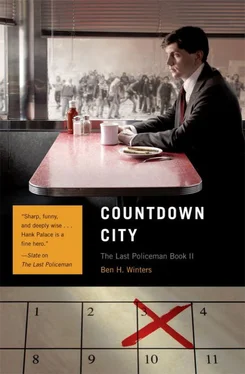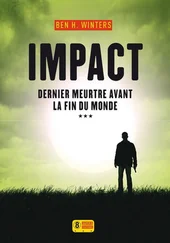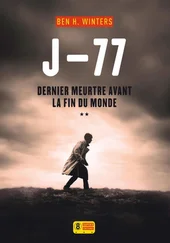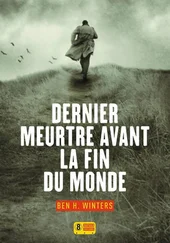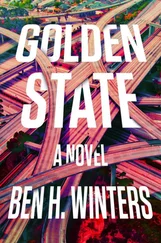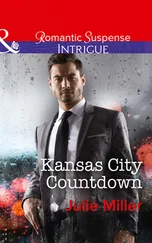I make my way carefully down the gentle slope to the granite wall that rings the fort’s easternmost edge. There’s a narrow trench dug into the mud just in front of the wall, except it’s not a trench at all, it’s an entrance, a stairhead carved out of the wet ground. A gash in the base of the wall, and then a short steep staircase into a dark chamber with a wet clay floor. The room is dank and close, as long and narrow as the barrel of a gun. A brass plate screwed into the granite wall identifies the room with an unfamiliar word: caponier. It smells like brine and fish and ancient mud. Light seeps in through nine high slit windows along the eastern face.
I am too tall, in a room like this. It bears down on me, coffin-like, and I can hear my heart beating, experience an unexpected sharp awareness of my body’s functioning as a machine.
I walk slowly across the room and lean into one of those slitted windows and squint. To the south there’s a lighthouse, to the north, uninterrupted miles of Maine coast. Way out on the horizon is the tiny black dot of an incoming ship and, twenty degrees to its left along the blue-green horizon, the tiny black dot of another. I stare for a minute, watching them come.
They must come all day. Big ships, their holds packed with desperate cargo, famished and exhausted, people from all over the world, the Eastern Hemisphere emptying itself out.
As I watch I see a third one, another speck on the far edge of the horizon, almost to the lighthouse on the harbor’s southern lip. I have a sudden vivid picture of the earth as flat, a tray, covered in marbles, and someone is tilting it, and the marbles are rolling, cascading, from east to west.
“It is hard to imagine the conditions onboard those ships.”
A voice deep and calm, and then there’s the scrape of a boot heel behind me, and I take a breath and turn around and there he is at last.
“The countries of origin, many of them, were impoverished to begin with,” says Brett Cavatone, his voice soft, even, scholarly. “More so since Maia. The ships are packed with travelers. They live in darkness, below decks in miserable dank holds, crawling with rats and bugs.” His beard has grown in more, thickened into a dense black jungle. His eyes are deep set and black as a well. “It is hard to conceive of what they eat, on those ships, or how they drink. Still they come.”
“Officer Cavatone, my name is Henry Palace. I’m from Concord.” He doesn’t respond. I keep talking. “Martha asked me to find you. She wants you to come home.”
Brett’s face betrays no surprise or confusion at this announcement. He doesn’t ask, as I have anticipated, how I found him or why. He just nods his head, once—message received.
“And has Martha found Mr. Cortez?”
“Yes.”
He nods again. “And is Mr. Cortez honoring our bargain?”
“Yes,” I say. “I think so.”
“Good. Then Martha is safe? And healthy?”
“She’s devastated. Heartbroken.”
“She is safe and healthy?”
“Yes.”
Brett nods a third time, nods deeply and closes his eyes, almost bows. “Thank you for coming.”
I hold up my hands. “Wait. Wait.”
It doesn’t seem fair. It doesn’t seem real , somehow, that at the end of this journey I should find a thirty-second conversation, a quick fair hearing and then goodbye, thank you for coming.
“Do you have a message for me to bring back to her?”
Brett closes his eyes and steeples his fingers. He’s in camouflage pants but a plain white T-shirt, sandals on his feet. “You may tell her that the asteroid has forced some hard decisions in me, as it has in many of us. Martha will understand what I mean.”
“No.” I shake my head.
“No?”
“Respectfully, sir, the asteroid did not make you leave her. The asteroid is not making anyone do anything. It’s just a big piece of rock floating through space. Anything anyone does remains their own decision.”
A smile flits across his lips, down in the thickness of facial hair. “You asked me to provide a message, and now you disapprove of it?” His voice is deep, hushed, rhythmic, like an Old Testament prophet. “You have discharged your obligation, friend. Your work is done, and now I must return to my own.”
“You are a married man,” I say. I’m pressing my luck. He stares back at me in silence, impassive as a mountainside. “Your wife is confused. You’ve left her terrified and alone. You can’t just abandon your promises because the world is over.”
I’m aware, even as I am talking, that these arguments are doomed to be unavailing. It is clear that Brett Cavatone is as rooted in his purpose as the fort’s stone walls, planted for centuries in this craggy soil, and my suggestion that he return to Martha and Rocky’s Rock ’n’ Bowl is not only impossible but ridiculous, juvenile somehow. Oh, why should he do what I say? Why, again? Because he promised ?
“I am not coming home.” He looks steadily at me, black eyes under furrowed brows. “Tell her that. Tell her our contract has been abrogated. She will understand.”
I can see her, Martha Milano at her kitchen table, aghast with grief, hand trembling on her teacup, stalking back and forth to the cigarettes she will not allow herself. “No,” I say to Brett. “I don’t think she will understand.”
“You said your name was Henry?”
“Henry Palace. I used to be a policeman. Like you.”
“There are things you don’t understand, Officer Palace. Things you cannot understand.”
He takes a step toward me, compact and powerful as a tank, and my mind flies to the little gun tucked in the inside pocket of my blazer. But I have no doubt that Brett, if he wanted to, could be on top of me before I drew, hammering me with his fists. Condensation drips from the ceiling of the room, sweats down the walls. I have to say one more thing, though. I have to try.
“Martha says your salvation depends on it.”
He repeats the single word, “salvation,” lets it hang in the gloomy air between us for a moment and then says, “I’ll need you to leave the grounds of this fort within ten minutes.”
He turns on the steps, presenting me with his broad back, and takes the first step out of the darkness of the caponier.
“Brett? Officer Cavatone?”
He stops, speaks quietly over his shoulder, without turning around. “Yes, Henry?”
I pause, gut rolling. Seconds pass. Yes, Henry?
My investigation is over. Case closed. But I hear Julia’s voice in my head, tense and taut with anxiety: Danger? I mean, danger doesn’t even…
I find that I cannot leave. I don’t know anything, but I know too much to leave. Brett is still waiting. Yes, Henry?
“I know what you’re doing,” I say. “I met Julia Stone, and she told me. She explained your intentions.”
“Oh,” he says calmly. “Well.” He is incapable of being surprised.
“And I—I’d like to help.”
Brett comes back down off the stairs and toward me, holding up his big hands like he’s warming them over a fire. I get the feeling he’s getting a sense off me, interpreting me like a crystal ball.
“Are you armed?” he says.
“Yes.” I take out the Ruger and hold it up. He takes it, weighs it in his hands, drops it in the mud.
“We can do better than that.”
* * *
Together we walk up the slippery and mossed steps of the caponier, and then together, silently, we cross the patched mud and seagrass of the fort to the blockhouse. Using a long stick with a curved hook on the end, Brett releases a rope ladder coiled at the elevated doorway, tumbles it down to where we can reach it to climb up. Brett goes first, swift and sure-footed, and I follow, heaving my ungainly body up the rungs, one at a time, all knees and elbows, like some kind of invading mantis.
Читать дальше
